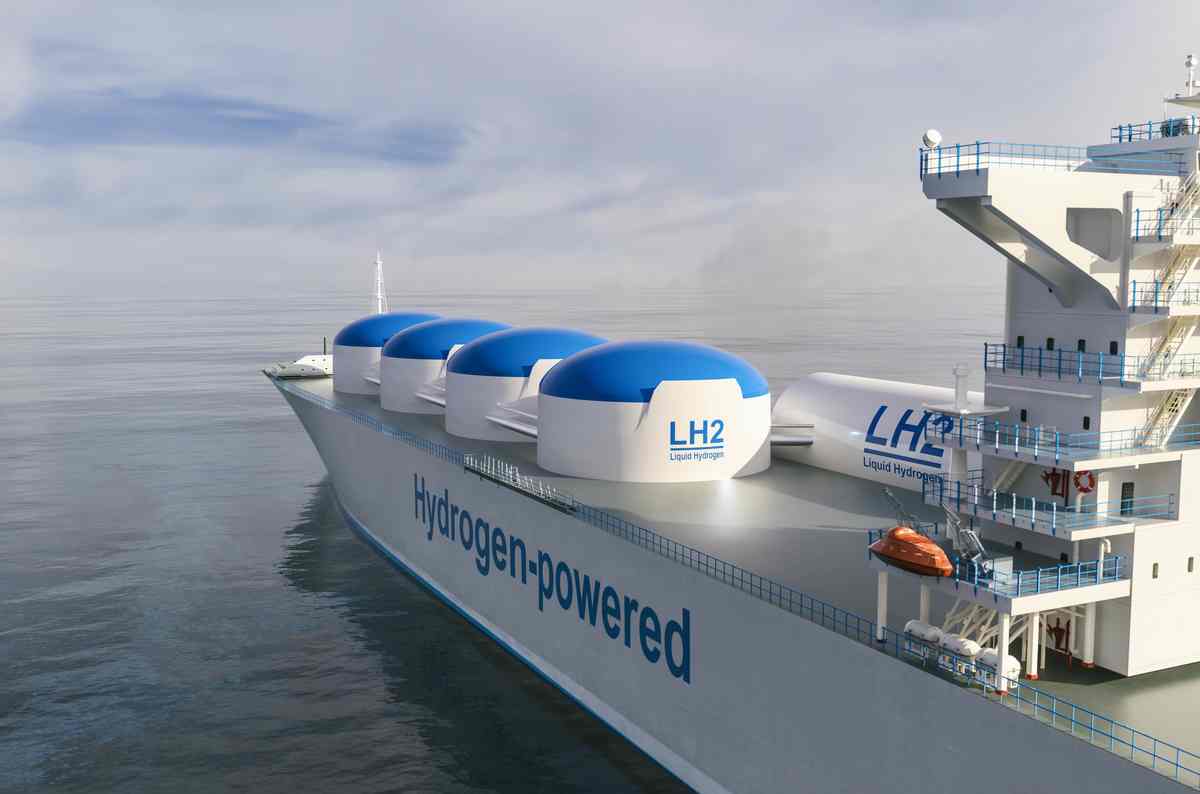CCS nod for marine liquid hydrogen fuel supply system
China Classification Society (CCS) has granted approval in principle (AiP) for the concept design of a liquid hydrogen fuel supply system for marine applications.
 PHOTO: Conceptual image of a vessel powered by hydrogen. Getty Images
PHOTO: Conceptual image of a vessel powered by hydrogen. Getty Images
The concept has been developed by China-based hydrogen fuel cell manufacturer Weishi Energy.
The system concept is “based on the actual application scenarios and the environmental conditions for the installation and use of marine products,” said CCS.
The integrated fuel supply system will include a liquid hydrogen storage tank, which will be based on cryogenic technology to ensure efficient storage and supply of liquid hydrogen.
Hydrogen has a low volumetric energy density. It needs to be stored either in a compressed form at high pressure (350-700 bar) or in a cryogenic form at very low temperatures (−252.8°C) to ensure it does not escape into the atmosphere during transport.
Additionally, the fuel supply system will be corrosion-resistant and alkaline-resistant, making it suitable for marine and high-humidity environments.
Meanwhile, the CCS has not specified the fuel supply system's storage capacity or the types of vessels that can use it.
Hydrogen’s potential beyond short-sea shipping
While hydrogen is an attractive option for decarbonising smaller vessels, it is not adequate for powering large ocean-going vessels.
This is because, currently, hydrogen vessels are powered by proton exchange membrane (PEM) fuel cells. PEM fuel cells require a constant supply of hydrogen to generate power, increasing hydrogen consumption on larger vessels that travel long distances. The high cost and challenges associated with storing large quantities of hydrogen on board make PEM fuel cells expensive and impractical for long-distance voyages.
To power vessels beyond short-sea shipping, today’s PEM fuel cells will have to make way for the next generation of solid oxide fuel cells (SOFCs), Tore Enger, chief executive of TECO 2030 told ENGINE last year. SOFCs have a much higher energy efficiency than other power sources, including PEM fuel cells.
By Konica Bhatt
Please get in touch with comments or additional info to news@engine.online






